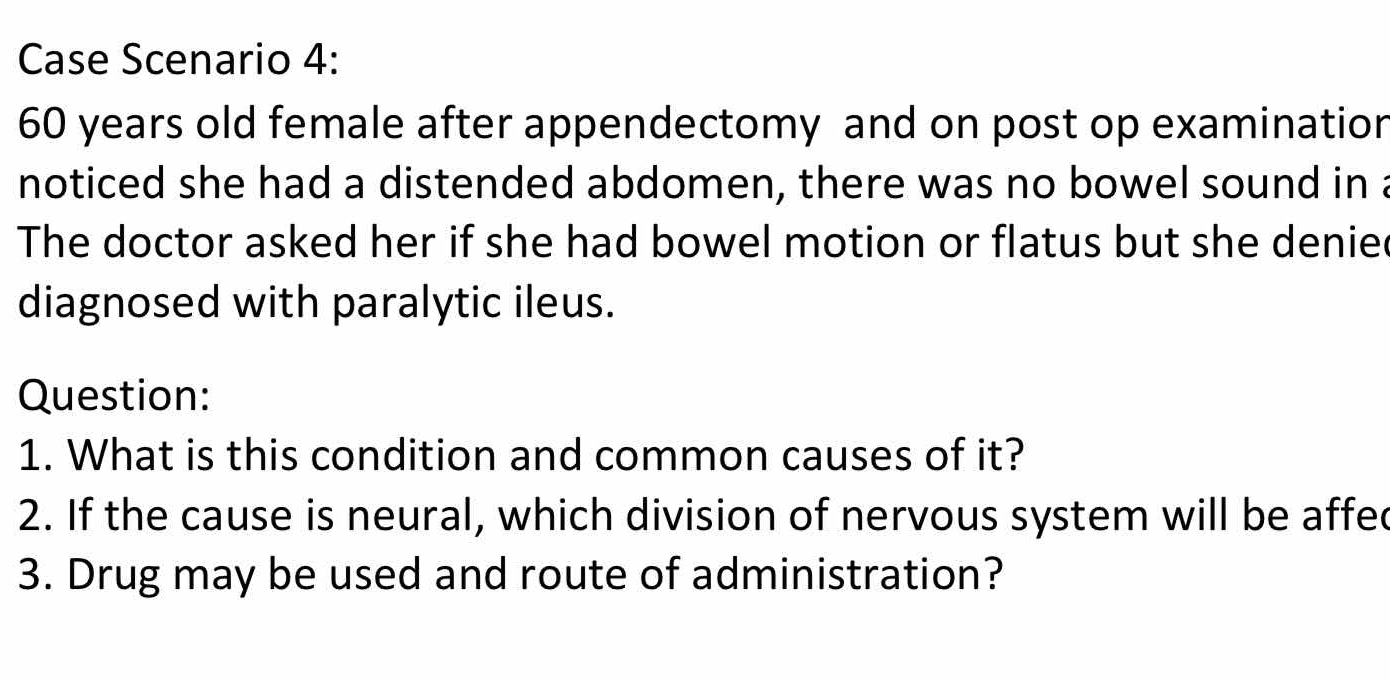1. What is this condition and common causes of it? 2. If the cause is neural, which division of the nervous system will be affected? 3. Drug may be used and route of administration... 1. What is this condition and common causes of it? 2. If the cause is neural, which division of the nervous system will be affected? 3. Drug may be used and route of administration?

Understand the Problem
The question is asking for a detailed explanation about the condition of paralytic ileus, including its definition, common causes, the affected divisions of the nervous system if the cause is neural, and possible drug treatments along with their routes of administration.
Answer
1. Paralytic ileus; post-surgery, infections. 2. Autonomic nervous system. 3. Neostigmine, IV.
- The condition is paralytic ileus, commonly caused by abdominal surgery, infections, electrolyte imbalances, or certain medications. 2. If neural, the autonomic nervous system is affected. 3. Neostigmine may be used, administered intravenously.
Answer for screen readers
- The condition is paralytic ileus, commonly caused by abdominal surgery, infections, electrolyte imbalances, or certain medications. 2. If neural, the autonomic nervous system is affected. 3. Neostigmine may be used, administered intravenously.
More Information
Paralytic ileus is a temporary cessation of normal intestinal movement. It often occurs after surgery due to anesthesia or handling of the intestines. Neostigmine, an acetylcholinesterase inhibitor, can help stimulate bowel movement.
Tips
A common mistake is confusing paralytic ileus with mechanical bowel obstruction, which has different causes and treatment. Always confirm lack of bowel sounds and distension to diagnose ileus.
Sources
- Overview of Nervous System Disorders | Johns Hopkins Medicine - hopkinsmedicine.org
- Sedative: What It Is, Uses, Side Effects & Types - Cleveland Clinic - my.clevelandclinic.org
AI-generated content may contain errors. Please verify critical information